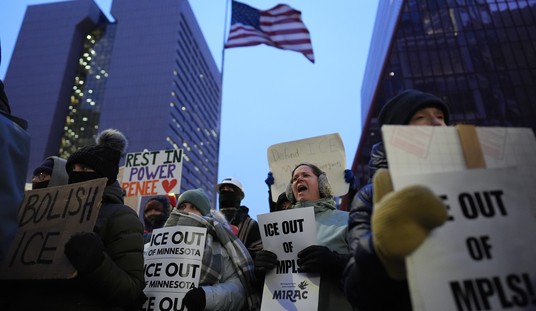Editor's Note: This column was co-authored by Tate Bennett.
While farmers and ranchers might be America’s backbone, their fate is too often decided by the D.C. Swamp, and not by their neighbors in America’s Breadbasket. On July 4, 2025, President Trump signed into law the One Big Beautiful Bill (OBBB), the largest U.S. middle- and working-class tax cuts in history. While the OBBB ultimately benefits all Americans, it will have a profound impact on farmers, ranchers, and rural communities, thereby laying the foundation for a new era of rural prosperity.
In short, the new law recognizes that America’s farmers and ranchers are more than food producers. They are economic drivers, land stewards, and guardians of national food security. In total, the OBBB is estimated to provide $10 billion in tax cuts to farmers, through measures that are straightforward, economically sound, and transformative. Many of these provisions are permanent, offering the long-term certainty and security that rural Americans value most.
One of the law’s most consequential reforms for agriculture is the permanent increase in the federal death tax exemption from $14 million to $15 million. Such changes will protect generational family farms and ranches from being lost to excessive tax burdens, as farm families no longer have to fear the reduction’s lapse, which was slated to drop to $7 million in 2026.
For farmers who are seeking to sell their land, the law creates tax benefits to incentivize sales to other qualified farmers, thereby encouraging land to stay in farming. This will help secure a strong, America First food supply.
The new law also locks in critical tax tools such as 100 percent immediate and doubled small business expensing— tools which are widely used by American farmers and ranchers to help manage costly expenditures like on farm equipment and other capital-intensive business investments. With respect to the latter doubled small businesses expensing, the House Committee on Ways & Means estimates the U.S. agricultural sector currently utilizes a full one-fifth of these deductions.
Recommended
And, the new law makes permanent at 20 percent the 199A business income deduction, which the USDA previously recognized as one of the most effective tax provisions for farm businesses that operate as sole proprietorships, partnerships, or S corporations. Specifically, this provision will provide a more level playing field for smaller farm businesses to compete with large corporations.
More broadly, OBBB drives $100 billion in rural investment. It permanently extends and enhances Opportunity Zones, and creates Rural Qualified Opportunity Funds (RQOFs), where qualified investments held for five years receive a 30 percent step-up in basis. These tools strengthen rural economies and reinforce local food systems.
But the new law provides more than just better tax terms for our farmers and ranchers. It also provides much-needed reforms to federal farm programs, absent a new Farm Bill. Specifically, the OBBB makes $62 billion in investments and reforms to Farm Bill Title I (Commodities) and Title XI (Crop Insurance) programs. Notably, beginning in crop year 2025, the bill increases reference prices and enhances the Agricultural Risk Coverage program to help producers keep up with higher production costs over the past four years.
But wait, there’s more! The OBBB addresses other pressing challenges, such as animal disease outbreaks. It includes $233 million in annual funding for animal disease preparedness, which is critical for protecting the U.S. food supply from threats like Highly Pathogenic Avian Influenza and New World Screwworm.
Further, the new law supports market promotion in an effort to help reverse the U.S. agricultural trade deficit and improves domestic access to healthy foods through increased funding for USDA Specialty Crop Grants and the Specialty Crop Research Initiative.
The list goes on. Rural healthcare is another major focus. The OBBB establishes a $50 billion Rural Health Transformation Fund. All 50 states, including Kentucky, are eligible to benefit from this program if their plans are approved by the Centers for Medicare and Medicaid Services later this year.
Finally, the bill reaffirms the importance of work. It implements common-sense work requirements in federal entitlement programs, while maintaining exemptions for those who cannot work. This ensures that individuals who are able to work are encouraged to do so.
For rural America, the One Big Beautiful Bill is clearly a landmark victory. It brings together tax relief, investment, healthcare, and workforce reforms in a way that strengthens the foundation of rural life. Federal policymakers should now work with state partners to ensure the law is implemented swiftly and effectively. Rural communities have waited long enough.
Jonathan Shell is the current Kentucky Commissioner of Agriculture.
Tate Bennett is the Director of Rural Policy at the America First Policy Institute.
Editor's Note: President Trump is leading America into the "Golden Age" as Democrats try desperately to stop it.
Help us continue to report on President Trump's successes. Join Townhall VIP and use promo code FIGHT to get 60% off your membership.
























Join the conversation as a VIP Member